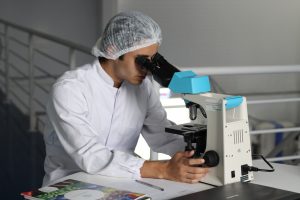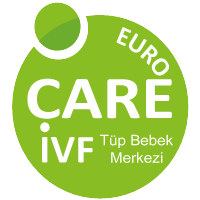 Genetic diagnosis has helped hundreds of families to prevent serious illnesses from being passed onto their offspring. Genetic testing like PGD in Cyprus can improve pregnancy rates by identifying the best embryos to transfer to the mother’s uterus. PGD has made it possible for patients who are carriers of genetic disorders to increase their chances of a successful pregnancy and reduce the risk of miscarriage.
Genetic diagnosis has helped hundreds of families to prevent serious illnesses from being passed onto their offspring. Genetic testing like PGD in Cyprus can improve pregnancy rates by identifying the best embryos to transfer to the mother’s uterus. PGD has made it possible for patients who are carriers of genetic disorders to increase their chances of a successful pregnancy and reduce the risk of miscarriage.
By analyzing the genetic structure of an embryo, PGD enables our medical team to examine far beyond the external appearance of an embryo based on its morphological characteristics. Thanks to this ground-breaking technology, our specialist can choose the best embryo(s) for implantation.
What is PGD in IVF
Preimplantation genetic diagnosis (PGD) is a genetic test that is used in IVF to screen single cells from embryos for potential genetic defects. This advanced screening technique offers couples the chance to select embryos that are genetically normal prior to embryo transfer. The goal is to identify unaffected embryos so that these are transferred to the uterus for a greater likelihood of a successful conception. PGD in Cyprus can identify the presence of genetic disorders with 99 percent accuracy. The most common diseases detectable through PGD are Cystic Fibrosis, Tay Sachs, Fragile X, and Thalassemia.
When is PGD recommended
PGD testing is generally recommended for:
- Couples with a family history of X-linked disorders
- Couples with single-gene disorders
- Carriers of autosomal recessive diseases
- Carriers of autosomal dominant diseases
PGD for Sickle Cell Anemia
Sickle cell anemia is a genetic disease that affects the red blood cells. It can cause pain and damage to a person’s vital organs. PGD in Cyprus has become useful in helping affected families to avoid the birth of babies affected with this serious condition. With the use of PGD, euroCARE IVF approaches 100% certainty in making sure that a couple’s pregnancy will result in the birth of a sickle cell free baby.
PGD for Cystic Fibrosis
Cystic fibrosis is a genetic disorder that affects mostly the cells that produce mucus, digestive juices or sweat. These cells are present in the lungs, digestive organs, kidneys, etc. Common symptoms of cystic fibrosis include difficulty in breathing and coughing up mucus as a result of lung infections.
PGD can be used to identify embryos affected by cystic fibrosis prior to conception. For couples who are carriers themselves or have a family history of cystic fibrosis, PGD can help you save money and heartbreak. Couples prefer PGD to prenatal testing since it is much more effective in preventing abortion or giving birth to a sick child than late prenatal testing during pregnancy. PGD in Cyprus is performed as part of IVF and only embryos that are genetically normal are selected for the transfer to the patient’s uterus.
PGD for Fragile X
Fragile X syndrome is a genetic disorder that affects a child’s cognitive abilities such as learning and behavior as well as physical development and health. Children with this genetic condition usually need special education to help them learn and develop like other kids.
PGD testing can help identify the fragile x disorder within an embryo before implantation. The PGD analysis can help our embryologists to identify affected (and non-affected) embryos with 99 percent accuracy. This provides an extra comfort for patients who are at risk of producing embryos affected with this genetic mutation. Only embryos free of fragile x mutation will be transferred to the woman’s uterus with the intent to establish a pregnancy.
PGD Testing and Implantation
Most fertility clinics select embryos for transfer based on their appearance. Generally, good grades are assigned to embryos with the best chance of implantation. Embryos with an appropriate number of cells at a given time, steady pace of growth and an absence of fragments are the ones that usually go into a patient’s womb. Pregnancy rates may double when genetically normal embryos are transferred.
Implantation rates are also significantly improved when PGD is carried out. A PGD analysis prior to the transfer provides valuable genetic information that can help us to select only the best embryos. Thanks to this screening technology, our team has been able to dramatically improve chances for pregnancy success in patients who have failed multiple IVF cycles.
IVF with PGD in Cyprus Timeline
The IVF treatment process using PGD testing involves the following steps:
Day 1 – First day of menstruation
Day 2 – Stimulation injections begin
Day 6 – An ultrasound scan
Day 9 – Fly to Cyprus
Day 10/11 – A scan and hCG injection (when eggs are ready)
Day 13 – Egg & Sperm collection
Day 18 – Embryo biopsy & Embryo freezing
Day 20– Embryo transfer (blastocyst day-5 transfer)
Patients who already have a genetic report can send it to us by email so that our genetics team can review their case and estimate the correct timeline. If you are required to undergo genetic testing, you may need to follow these steps:
Step 1: You will be asked to come to our genetics laboratory to deposit your blood sample. Alternatively, you can send your sample of blood via a delivery company.
Step 2: Once your sample has been delivered, the genetics team will carry out a lab analysis to obtain information about the properties of your blood and will also prepare the set up.
Step 3: Approximately 2 months after receiving your blood sample (2 months is the duration of the set up preparation), we will discuss the test results and the details of your IVF treatment.
IVF Process with PGD Testing
Step 1: Fertility Testing
The first step of the IVF process using PGD in Cyprus is to conduct fertility testing for each partner in order to determine the cause(s) and duration of infertility. This includes:
Female patient
- Hormone blood tests to assess the levels of AMH (anti-mullerian hormone), TSH (thyroid-stimulating hormone) and PRL (prolactin).
- Infectious disease testing to check for HIV and Hepatitis B and C
- A transvaginal ultrasound scan to assess the ovarian reserve (number of eggs in the ovaries).
Blood tests for the female partner can be arranged at any time during the menstrual cycle. However, the ultrasound scan should be carried out before ovulation which is day 10 / 11 of your menstrual cycles.
Male partner
- Infectious disease testing to check for HIV and Hepatitis B and C
- Sperm analysis to measure sperm count, movement and shape
These tests will help our euroCARE IVF doctor to develop the best treatment plan for you and your partner. Once the details of the treatment plan have been confirmed, the ovarian stimulation phase can begin.
Step 2: Ovarian Stimulation
The IVF cycle starts on the first day of your menstrual cycle. On day 2 you will start taking hormone injections to stimulate the production of multiple eggs in your ovaries. Injections are administered subcutaneously (under the skin) every day during the stimulation period. This phase lasts 10 to 12 days. An ultrasound scan is arranged after the fifth injection to check the response of your ovaries to the fertility drugs. At this point, your medication protocol may be altered or changed completely. Upon your arrival to our clinic in North Cyprus, you will have another scan to determine if the eggs are large enough for retrieval. When the eggs reach maturity, a final hCG injection (‘trigger shot’) is administered. This injection stimulates the final maturation and release of eggs in the ovaries.
Step 3: Egg Retrieval
After the trigger shot (hCG injection) is administered, the mature eggs are collected using a soft, thin tube. You will be under light sedation during this procedure. Multiple eggs will be aspirated within 15 to 20 minutes. Bed rest is often advised following an egg retrieval procedure.
Step 4: Fertilization (ICSI method)
The collected eggs are first analyzed and then selected for fertilization based on two factors: quality and maturity. Mature, good-quality eggs are fertilized with the sperm in a procedure called intracytoplasmic sperm injection (ICSI). Fertilization is achieved with the sperm being injected into the egg using micro manipulative devices under a powerful microscope. ICSI is an effective method of fertilization with high fertilization rates that is performed in all fertility treatments at euroCARE IVF at no extra cost. The fertilized eggs (now embryos) are then left to grow in a culture medium for a couple of days before being sent to the lab for PGD analysis.
Step 5: PGD Analysis
When embryos reach the blastocyst stage, which is on day 5 after fertilization, one cell from each of the embryos is removed for lab analysis. During PGD in Cyprus, cells are usually removed from the trophectoderm, which is the outer layer of a blastocyst embryo. The embryos are then frozen so that our genetics team can screen the extracted cells. Once the results are ready, you will discuss your embryo transfer date with our doctor, and a frozen embryo transfer (FET) will be planned.
Spet 6: Embryo Transfer
Once the PGD test results are ready, our embryologist will select only the high quality, disease-free embryos for your transfer. Age, quality and stage of development of the embryos are important factors when deciding on the number of embryos to transfer. Embryos are usually transferred on day 3 or day 5 after fertilization. Embryo transfer on day 5 after egg retrieval is called blastocyst transfer.
Step 7: Pregnancy Test
After the embryo transfer, there is a two week wait. During this time, patients should not take a pregnancy test at home. You will be arranged a beta hCG blood test 12 days after the embryo transfer or a urine test 14 days post transfer to check the outcomes of the IVF procedure.
 PGD Testing Procedure
PGD Testing Procedure
Once created in the embryology laboratory, embryos are cultured for five days. When embryos reach the blastocyst stage, one cell is extracted from each of them. Cells are removed from the trophectoderm, the outer layer of the day-5 embryo. This is the stage of developmen when the embryo is about to hatch out of the zona pellucida (covering membrane).
Next, the embryos are frozen and stored while their genetic material is analyzed in the lab. Once the PGD test results are ready, you will have a meeting with our specialist to discuss the options available and a frozen embryo transfer (FET) procedure will be arranged. Decision as to the number of embryos to transfer is made between the medical team and the woman/couple.
Frozen Embryo Transfer after PGD Testing
In the procedure for PGD in Cyprus, embryos are frozen immediately after the biopsy. At euroCARE IVF, we use vitrification to preserve embryos. When the test results are ready, the best embryos will be thawed and then transferred to the patient’s uterus. This procedure is called frozen embryo transfer (FET). If there are extra unaffected and good-quality embryos, the patient(s) may decide to keep the embryos cryopreserved for use in future IVF cycles.
Is PGD Testing Safe
The PGD biopsy does NOT damage the embryo. This is because blastocyst embryos have many cells (200-300cells) and the removal of a single cell from the trophectoderm of the embryo cannot reduce its ability to develop into a healthy child. Patients whose embryos were screened for genetic mutations can expect greater likelihood of reaching a healthy pregnancy and fewer pregnancies to end in miscarriage because most abnormalities are identified prior to implantation.
PGD or PGS
PGS and PGD are used in IVF procedures to screen embryos prior to their transfer to the patient’s uterus.
PGS (preimplantation genetic screening) examines the chromosomal composition of an embryo. This test can tell if all 23 pairs of chromosomes are present within an embryo. Embryos that are found to have a missing or an extra pair of chromosomes are excluded from the transfer. PGS is used to detect chromosomal abnormalities like Trisomy 21 (Down syndrome) and Trisomy 18 (Edwards syndrome).
PGD in Cyprus, on the other hand, screens embryos for a specific genetic mutation that one or both parents may carry. Some of the disorders detectable through PGD are: muscular dystrophy, sickle cell anemia, cystic fibrosis and Tay-Sachs.
Parents who already have a child or children of a particular sex may want to have a child of the opposite sex. At euroCARE IVF, we do gender selection through PGS. Gender selection is available to all euroCARE IVF patients who wish to have a baby of a particular gender either for medical or non-medical (family balancing) reasons.
PGD Testing vs Amniocentesis
Both PGD and PGS take place before embryo transfer. Prenatal testing is carried out after conception has occurred.
Chorionic villus sampling (CVS) and amniocentesis are two genetic tests used to identify chromosomal abnormalities in an unborn baby. When abnormalities are detected or confirmed during prenatal testing, the options are to either continue or terminate pregnancy. Most doctors recommend prenatal testing in addition to PGD/PGS.
PGD Testing at euroCARE IVF
Preimplantation genetic diagnosis (PGD) is an advanced technology used during IVF treatment in attempts to increase the likelihood of a successful pregnancy and delivery. PGD in Cyprus is performed on the cells removed from each of the embryos to help select the best embryo(s) for transfer. Thanks to the valuable genetic information, parents can make well-informed decisions about their embryos. With PGS/PGD in Cyprus, patients at risk of producing abnormal embryos can be sure that the transferred embryos are healthy, disease-free and have the best chance of implantation. We’ve seen many patients with prior implantation failures who were able to improve significantly their treatment outcome thanks to these two powerful genetic tests. If you feel that PGD in Cyprus may benefit you, we encourage you to contact us for further information. Resources:
